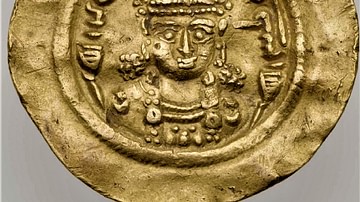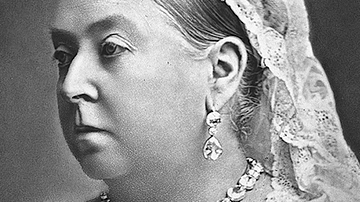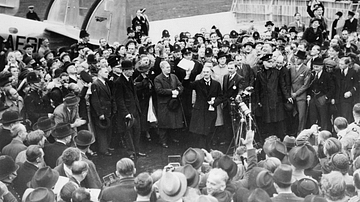Search
Did you mean: Nile?
Remove Ads
Advertisement
Summary 
Loading AI-generated summary based on World History Encyclopedia articles ...
Search Results

Article
The Stolypin Reforms - Tsar Nicholas II's Attempt to Stave off Revolution
Pyotr Stolypin (1862-1911) was a Russian politician who served as prime minister to Tsar Nicholas II (reign 1894-1917). Stolypin ruthlessly quashed anti-Tsarist rebellions after the Russian Revolution of 1905 but was also responsible for...

Definition
Iranian Revolution
The Iranian Revolution (1978-1979) was the social movement that arose from widespread and diverse discontent with the monarchic government of Iran. The revolution was fought against the regime of Mohammad Reza Shah (r. 1941-1979), and it...

Article
Why Did Britain & France Appease Hitler?
The policy of appeasement towards the demands of Adolf Hitler (1889-1945) regarding Nazi Germany's territorial expansion ultimately failed when the Second World War (1939-45) began. The reasons appeasement was adopted by Britain and France...

Article
Boran & Azarmiduxt: Queens of the Sassanian Empire
Boran (r. 630, 631-632) and Azarmiduxt (r. 630-631) were the only queens of the Sassanian Empire who ruled with the power of absolute monarchs. Daughters of Shahanshah (king of kings) Khosrow II (r. 590-628), Boran and Azarmiduxt, tried to...

Definition
Eratosthenes
Eratosthenes (l. c. 276-195 BCE) was a Greek astronomer, geographer, mathematician, and poet best known for being the first to calculate the circumference of the earth and its axial tilt. He is also recognized for his mathematical innovation...

Definition
Aristotle
Aristotle of Stagira (l. 384-322 BCE) was a Greek philosopher who pioneered systematic, scientific examination in literally every area of human knowledge and was known, in his time, as "the man who knew everything" and later simply as "The...

Definition
Queen Victoria
Queen Victoria of Great Britain (r. 1837-1901) was one of the most loved of all Britain's monarchs. Her longevity, devotion to her role as figurehead of an empire, and recovery from the death of her beloved husband Prince Albert won her a...

Definition
Munich Agreement
The Munich Agreement, signed on 30 September 1938 at the Munich Conference attended by the leaders of Britain, France, Italy, and Germany, handed over the Sudetenland of Czechoslovakia to Germany in the hope that this act of appeasement would...

Image
William Pitt the Younger
William Pitt the Younger (1759-1806), who served as prime minister of Great Britain from 1783 until the Acts of Union 1800, at which point he became the first prime minister of the United Kingdom until he left office in 1801. He returned...

Article
The Death of Ur-Nammu
The Death of Ur-Nammu is a Sumerian lament over the passing of the king Ur-Nammu (r. 2047-2030 BCE), founder of the Third Dynasty of Ur, who was killed in battle fighting the Gutians in 2030 BCE. The poem is frequently cited for its depiction...